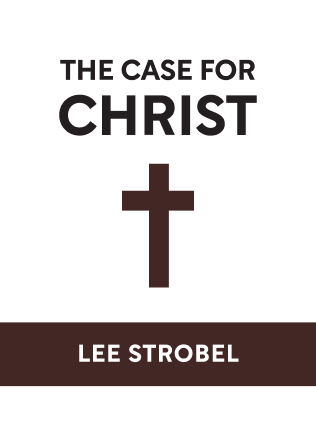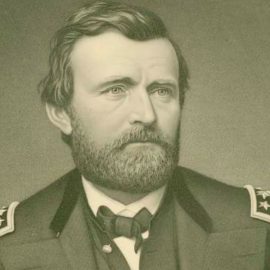

This article is an excerpt from the Shortform summary of "The Case for Christ" by Lee Strobel. Shortform has the world's best summaries of books you should be reading.
Like this article? Sign up for a free trial here .
Who is Dr. Gregory Boyd? What are his views on Christianity, the evidence of Jesus, and the Jesus Seminar?
Dr. Gregory Boyd was a scholar and a Christian, who believed that the ideas put forth by the Jesus Seminar were incorrect. Boyd believed that the gospels are a trustworthy source of information.
Keep reading to find out more about Dr. Gregory Boyd’s views.
Dr. Gregory Boyd and the Jesus of the Gospels
In the ’90s, a small group of New Testament scholars calling themselves the Jesus Seminar rose to prominence. These scholars, a tiny minority of New Testament experts, received a wealth of media coverage due to their idiosyncratic methods and radically new accounts of the Bible. For example, the group voted on the authenticity of each of Jesus’s sayings with colored beads; later, they published a book called The Five Gospels (the canonical four plus the Gospel of Thomas), which featured color-coded text reflecting their votes. 82% of the book was rendered in black, the color for words Jesus never said at all; only 2% of the book was in red, the color for words Jesus definitely said.
Given the attention paid to the Jesus Seminar in the media and their assertions of Jesus’s “materiality” (that is, his mortality rather than his deity), Strobel feels it’s vital to consider, and, hopefully, refute, the Jesus Seminar. To do so, he visits Dr. Gregory Boyd, a professor at Bethel College who received his graduate education in divinity at Yale and Princeton. Dr. Gregory Boyd is the author of a 416-page scholarly rebuttal to the Jesus Seminar entitled Cynic Sage or Son of God? Recovering the Real Jesus in an Age of Revisionist Replies, and, in addition to his scholarly work, he serves as a pastor at Woodland Hills Church in St. Paul, Minnesota.
Jesus as One Among Many
Members of the Jesus Seminar have sought to emphasize Jesus’s “naturalism” by placing his pronouncements and deeds in historical context—by showing that rabbis and other Jewish figures were purported to have performed miracles as well. If other religious leaders of the time were perceived as having supernatural powers—powers no one now believes in or takes seriously—then it stands to reason Jesus’s powers should be treated similarly: as myth.
However, the parallels between Jesus and other “wonder workers” of the time don’t go very far. Dr. Gregory Boyd notes three ways in which Jesus is unique:
- No other religious leader was so closely associated with the supernatural.
- No other religious leader performed miracles of Jesus’s caliber (whereas rabbis were known to bring rain by praying for it, no rabbi was known to have cured permanent illnesses or raised the dead).
- No other religious leader performed miracles on his own authority (whereas rabbis would pray for God to perform a certain miracle, Jesus assumed that authority himself as God himself).
Dr. Gregory Boyd’s Personal Journey
For liberal interpreters of the New Testament, like the scholars comprising the Jesus Seminar, Jesus’s divinity becomes symbolic: The miracles and resurrection are there simply to inspire Christians to hew more closely to Jesus’s teachings.
For Dr. Gregory Boyd, whose belief is rooted in his years of scholarship and deep faith, this understanding of Jesus is utterly wrongheaded. Jesus’s power to inspire and instruct is indistinguishable from the truth of his supernatural abilities; Paul himself says that if the resurrection didn’t truly happen, then faith is useless. The fact that Paul—and the gospel authors—remain committed to their faith is a token of Jesus’s divinity in fact.
Boyd, too, is committed to Jesus because he is certain of the reality of Jesus’s divinity. He acknowledges that some of the claims about Jesus, the supernatural ones in particular, are perhaps hard for a modern person to believe. But the evidence for those supernatural events—the healing of the sick, the rising from the dead—is incontrovertible. The Jesus Seminar’s distinction between a “Jesus of History” and “Jesus of Faith” simply doesn’t hold up under scrutiny; the Seminar’s central pieces of evidence are thin and/or contradictory, whereas the New Testament, coupled with secular sources like Josephus, paints a remarkably consistent picture of a divine Jesus.
For Dr. Gregory Boyd, it’s a no-brainer for him to put his trust in the gospels.

———End of Preview———
Like what you just read? Read the rest of the world's best summary of Lee Strobel's "The Case for Christ" at Shortform .
Here's what you'll find in our full The Case for Christ summary :
- How an atheist lawyer-journalist researched Christ and began believing
- The key arguments against the existence of Christ, and why they don't hold up
- How to make up your own mind about whether Christ existed






